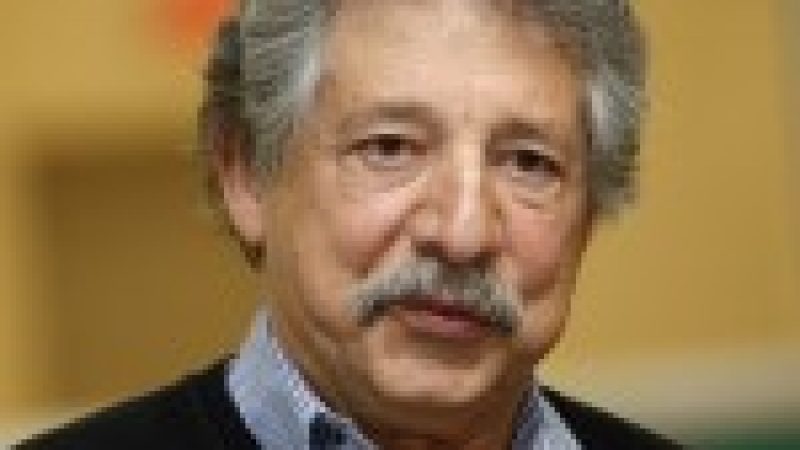The Dem guv candidate pegged by some pundits as the Bernie Sanders of Wisconsin is 72-years-old and has a penchant for blunt assessments of politics and policy — just like the Vermont senator who used to be the mayor of a college town with lots of lakefront.
Madison Mayor Paul Soglin admits his priorities for the state — investments in education, transportation, housing and broadband — might mean some tax increases.
But the longtime mayor doesn’t think that will turn off voters.
“I obviously think that making a commitment to education, that redistributing how we spend money and putting it into education, into transportation systems as opposed to corrections is a wiser way to go, and the people of this state believe that, too,” Soglin told reporters after a WisPolitics.com luncheon on April 17 in which he suggested higher gas and income taxes.
>> WisPolitics is now on the State Affairs network. Get custom keyword notifications, bill tracking and all WisPolitics content. Get the app or access via desktop.
As to the comparison to Sanders, the former mayor of Burlington, Vt. who won the Wisconsin primary in 2016, Soglin said he doesn’t mind it for one chief reason: “The question of age and the question of your liberal or progressive politics is not an obstruction to electoral success in our state. That’s evident,” he said.
Soglin turned 73 on April 22.
Soglin’s banking on an approach for economic development wholly different from Gov. Scott Walker’s that prioritizes public investments over tax cuts for industry.
“That’s what stimulates investment, stimulates the economy,” he said.
Soglin told the luncheon audience tax increases will be part of a multifaceted strategy to provide more resources to areas like Wisconsin’s ailing road system.
“Certainly an increase in the gas tax has got to come. And it should be indexed, there’s no question about that. There has to be a steady flow of revenues to take care of the state, the county and the town roads. There may have to be other tax increases, or redistribution.”
By redistribution, Soglin means shifting state spending away from agencies like the Department of Corrections, which has eclipsed the UW System as the state agency with the largest budget.
The strategy differs from Walker’s repeated rhetoric against boosts in gas and property taxes. Like Walker, Soglin said he’s not interested in pursuing toll roads as a way to patch the transportation budget.
Soglin added he’d provide more resources to public schools by using funds from added income taxes as opposed to increases in property taxes.
He says he’s taking cues from what he thinks made Wisconsin’s public schools better years ago.
“We go back to that,” Soglin said. “Which is we collect revenues at the state level and that may require an increase in the income tax. And then we redistribute it to school districts based on population and local wealth.”
He also said he’d allow more freedom for schools in choosing how to spend their money, and tweaking the funding formula to allow school districts with smaller tax bases to receive more money from the state per capita than wealthier districts.
While Walker recently signed off on a law that provides more funding to public schools and rural school districts in particular, Soglin wrote the effort off as “slashing three quarters of the tree and replacing it with a few twigs.”
Soglin continued his criticism of Walker’s Act 10 legislation, arguing that Walker unfairly targeted teachers’ benefits at the time while ignoring the fact the salaries of Wisconsin educators were lower than the national average.
“We’re going to have to go back and recognize that we’re going to have to compensate them if we want to have quality public schools,” Soglin said. “I think the cost of what comes out at the other end is well worth the investment.”



